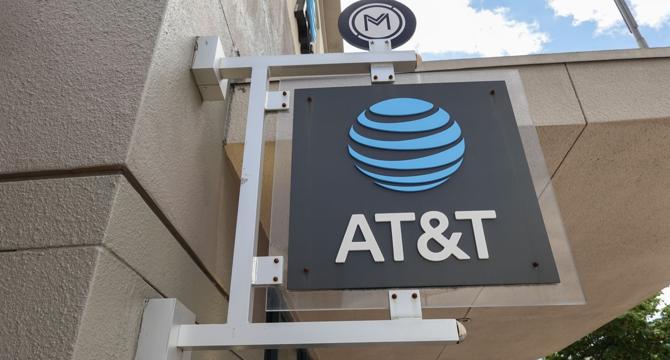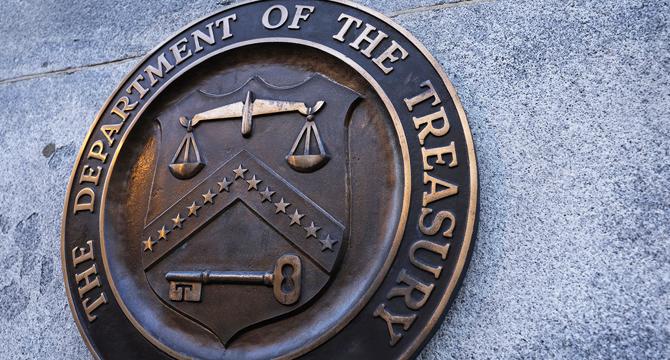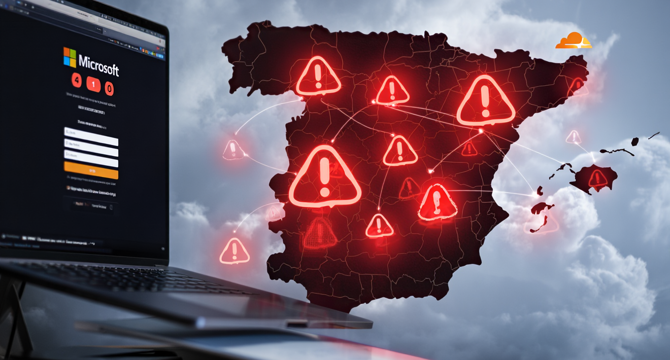Cyber Security News
Insider
390

Image Credit: Insider
Man who skipped security and snuck onto an American flight ordered to pay $60,000 after the flight was canceled
- Jonathan Beaulieu ordered to pay nearly $60,000 after sneaking onto an American Airlines flight and causing its cancellation.
- Beaulieu pleaded guilty in connection with the incident at Philadelphia International Airport in June 2024.
- He bypassed security, boarded the plane, and was discovered before takeoff, leading to the flight being canceled.
- American Airlines reported a cancellation cost of $59,143, which Beaulieu was ordered to pay back, and he was sentenced to probation.
Read Full Article
23 Likes
Tech Radar
345

Image Credit: Tech Radar
AT&T has a new tool to stop dangerous SIM swapping attacks - here's how it will keep you safe
- AT&T has introduced a new feature called Wireless Account Lock to protect consumer and business accounts from SIM-swapping attacks.
- The feature can disable key account changes, preventing attackers from gaining control of a victim's phone number through SIM-swapping.
- Users can toggle the feature on or off in the myAT&T app, adding an extra step before upgrading a device or changing important account details.
- AT&T has also introduced Business Account Lock for business users to enhance security against malicious insiders and cyber threats.
Read Full Article
20 Likes
Dev
91

Image Credit: Dev
Implementing Robust API Security Measures [Part 2]
- API security is crucial for protecting data and infrastructure from malicious actors.
- Key security measures include robust authentication strategies like OAuth 2.0, JWT, API keys, and multi-factor authentication.
- Authorization controls such as RBAC, granular permission settings, and data protection measures like encryption are essential for limiting access.
- Input validation, sanitization, and monitoring for suspicious behavior are critical to prevent common attacks, but security is an ongoing process that requires regular reviews and updates.
Read Full Article
5 Likes
TechCrunch
216

Image Credit: TechCrunch
Hacked, leaked, exposed: Why you should never use stalkerware apps
- Stalkerware companies losing massive customer and victim data due to hacks and leaks.
- At least 26 stalkerware companies breached, exposing sensitive personal information since 2017.
- Data leaks from companies like Catwatchful, SpyX, Cocospy, mSpy, exposing millions.
- Eva Galperin from EFF states industry is a 'soft target' for hackers, risking user data.
- Stalkerware use unethical, illegal, and poses risks due to numerous data breaches.
Read Full Article
13 Likes
TechDigest
370

Image Credit: TechDigest
Qantas cyber attack exposes data of up to 6 million customers, Scattered Spider suspected
- Qantas Airlines confirmed a cyberattack exposing data of up to 6 million customers, with personal records compromised.
- The breach involved customer names, email addresses, phone numbers, birth dates, and frequent flyer numbers; however, no credit card details or passwords were compromised.
- The attack is suspected to be linked to the 'Scattered Spider' ransomware group known for targeting aviation and retail sectors.
- Qantas CEO apologized, notified authorities, and set up customer support for affected individuals; cybersecurity experts have been engaged for investigation.
Read Full Article
22 Likes
Mcafee
195

Image Credit: Mcafee
How to Know If Your Phone Has Been Hacked
- Cyber criminals use spyware, adware, ransomware to hack your smartphone and steal data.
- Hacked phones lead to financial loss, identity theft, privacy invasion, emotional damage.
- Signs of a hacked phone include popups, data spikes, unfamiliar apps, camera/mic activation.
- Protect your phone by updating OS, using VPN on public Wi-Fi, and enabling security features.
Read Full Article
11 Likes
Securityaffairs
266

Image Credit: Securityaffairs
U.S. Sanctions Russia’s Aeza Group for aiding crooks with bulletproof hosting
- The U.S. Treasury sanctions Russia's Aeza Group and affiliates for aiding cybercriminals through bulletproof hosting services.
- Bulletproof hosting services allow cybercriminals to host malicious content and evade shutdown attempts by authorities.
- The sanctions target Aeza Group subsidiaries and key figures involved in managing cybercrime-supporting infrastructure.
- The U.S., UK, and Australia recently sanctioned another Russian bulletproof hosting provider, Zservers/XHost, for supporting ransomware operations.
Read Full Article
16 Likes
Siliconangle
382

Image Credit: Siliconangle
Cofense uncovers dramatic rise in phishing attacks using Spain’s .es domains
- Cofense reports a significant increase in malicious activities using Spain’s .es top-level domain for phishing attacks, with a 19-fold surge from Q4 2024 to Q1 2025.
- Threat actors are utilizing .es domains to host second-stage phishing pages, primarily impersonating Microsoft services like Outlook alongside other companies like Adobe, Google, and Docusign.
- About 99% of the identified malicious .es domains are hosted on Cloudflare's infrastructure, potentially raising concerns about the ease of deploying malicious content using modern tools.
- Cofense advises organizations to enhance their detection strategies, focusing on subdomain monitoring and brand spoofing detection, as domain abuse patterns serve as early warning signs for evolving threat activities.
Read Full Article
23 Likes
Socprime
116

Image Credit: Socprime
CVE-2025-32463 and CVE-2025-32462: Sudo Local Privilege Escalation Vulnerabilities Threaten Linux Environments
- New local privilege escalation vulnerabilities, CVE-2025-32462 and CVE-2025-32463, affect Sudo utility on Linux.
- Vulnerability exploitation on Linux systems surged by 34% in 2025, contributing to breaches.
- CVE-2025-32463 involves sudoers policy loophole; CVE-2025-32462 is a long-standing bug in Sudo.
- No current workarounds exist, update to Sudo version 1.9.17p1 recommended for mitigation.
- Security experts emphasize timely patching to minimize exposure in the threat landscape.
Read Full Article
7 Likes
TechCrunch
70

Image Credit: TechCrunch
Qantas hack results in theft of 6 million passengers’ personal data
- Qantas airline reported a data breach on June 30, exposing six million passengers' personal information.
- The breach occurred when a cybercriminal targeted one of Qantas' call centers, stealing names, emails, phone numbers, dates of birth, and frequent flyer numbers.
- This incident follows a series of airline hacks, with Scattered Spider group allegedly involved. WestJet and Hawaiian Airlines were also recently targeted.
- Mandiant advised airlines to be wary of social engineering attacks, though it's unclear if the Qantas hack is linked to Scattered Spider.
Read Full Article
4 Likes
TechBullion
70

Image Credit: TechBullion
Call for Participation: 2025 FinVolution Global Data Science Competition-Deepfake Face Detection Challenge
- The 2025 FinVolution Global Data Science Competition focuses on deepfake detection to combat identity theft and fraud incidents.
- The competition aims to leverage advanced technologies like deep learning to develop algorithms capable of identifying authentic and manipulated images.
- The event offers various cash prizes and awards to encourage innovation in deepfake detection technologies and promote ethical AI applications.
- The FinVolution Group, hosting the competition, is a leading fintech company known for pioneering credit risk assessment, fraud detection, big data, and AI technologies.
Read Full Article
4 Likes
TechDigest
37

Image Credit: TechDigest
Amazon Prime Day Warning: over 120,000 scam sites target bargain hunters
- With Amazon Prime Day approaching on July 8, shoppers need to beware of over 120,000 scam sites impersonating Amazon.
- Cybercriminals are taking advantage of the extended four-day sales event to launch phishing attacks, distribute malware, and sell fake goods.
- NordVPN reports a surge in malicious websites targeting consumers, highlighting the importance of caution when clicking on deals or sharing personal information.
- Experts recommend shopping directly on Amazon's official website, verifying secure URLs, and avoiding deals that seem too good to be true to prevent falling victim to online scams.
Read Full Article
2 Likes
Securityaffairs
266

Image Credit: Securityaffairs
Qantas confirms customer data breach amid Scattered Spider attacks
- Qantas confirmed a cyberattack where hackers accessed customer data through a third-party platform, linked to ongoing Scattered Spider cyber breaches.
- The airline detected and contained the breach, securing core systems but estimating that up to 6 million customer records may have been compromised.
- Qantas is enhancing security measures, notifying authorities, and providing support to affected customers, with ongoing updates through official channels.
- Scattered Spider, known for targeting the aviation industry, uses social engineering and ransomware tactics, prompting collaboration with the FBI and industry partners.
Read Full Article
16 Likes
Tech Radar
312

Image Credit: Tech Radar
Qantas reveals massive data breach - 6 million customers possibly affected, here's what we know
- Qantas, Australia's largest flight provider, has confirmed a major cyberattack whereby a threat actor targeted a call center and accessed a third-party customer servicing platform.
- The attack may have been carried out by the group known as Scattered Spider, with six million Qantas customers potentially affected.
- Stolen data includes customer names, email addresses, phone numbers, birth dates, and frequent flyer numbers, but does not include credit card details or passport information.
- Qantas has contained the breach, informed authorities and affected individuals, and confirmed that critical information like passwords and financial details remain uncompromised.
Read Full Article
18 Likes
Kraken
266

Image Credit: Kraken
Strengthening sanctions compliance: Building for scale and trust
- Kraken has enhanced its global compliance framework to ensure a secure platform for its clients.
- The completion of a multi-year effort to improve sanctions compliance reflects Kraken's commitment to risk management and operational excellence.
- Kraken finalized commitments with the U.S. Department of the Treasury's OFAC to enhance sanctions controls, affirming its robust processes.
- The company's compliance efforts include advanced tools, internal controls, risk assessments, and engagement with regulators, aiming to become a trusted and secure leader in the crypto industry.
Read Full Article
16 Likes
For uninterrupted reading, download the app